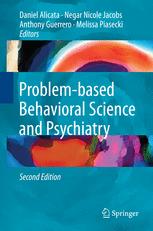

Most ebook files are in PDF format, so you can easily read them using various software such as Foxit Reader or directly on the Google Chrome browser.
Some ebook files are released by publishers in other formats such as .awz, .mobi, .epub, .fb2, etc. You may need to install specific software to read these formats on mobile/PC, such as Calibre.
Please read the tutorial at this link: https://ebookbell.com/faq
We offer FREE conversion to the popular formats you request; however, this may take some time. Therefore, right after payment, please email us, and we will try to provide the service as quickly as possible.
For some exceptional file formats or broken links (if any), please refrain from opening any disputes. Instead, email us first, and we will try to assist within a maximum of 6 hours.
EbookBell Team

4.0
6 reviewsIn keeping with the growing emphasis on psychiatry in the medical school curriculum, problem-based learning (PBL) offers students a unique patient-centred, multidisciplinary approach to study and the synthesis of knowledge.
The new 2nd edition of Problem-Based Behavioral Science and Psychiatry integrates DSM-5 updates and diagnostic criteria, and is fully consistent with PBL models and methods. Building on the strengths of the popular and widely downloaded 1st edition, the 2nd edition is a clinically robust resource for both the medical and the behavioral science student. Over 40 contributors, many themselves graduates of PBL medical schools, apply problem-based learning methods to specific psychiatric disorders, general clinical issues, and bedrock physician skills such as the intake interview and treatment planning.
The book’s fictional case vignettes illustrated typical patient scenarios, providing real-world context for content areas, and accompanying case diagrams show the relationships between patient behaviour and underlying neurobiological structures. Each student-friendly section ends with helpful review questions.
A sampling of the content areas covered:
· Childhood development and brain development.
· Major psychiatric illnesses, including personality, mood, anxiety, and psychotic disorders.
· Stress, substance abuse, and violence.
· Eating, sleep, and sexual disorders.
· Coping skills and treatment compliance.
· End-of-life care.
· PLUS chapters on cultural sensitivity, ethical concerns, and the physician/patient relationship.
This book is ideal for first and second year medical students wanting to learn about psychiatry in the exciting context of realistic cases. It also makes an excellent prep/review text for third- and fourth-year medical students preparing for the USMLE Step 1 and 2 exams, as well as being suited to graduate students in psychology or clinical social work. Problem-Based Behavioral Science and Psychiatry encourages lifelong learning and helps build the foundation for a lifelong career.